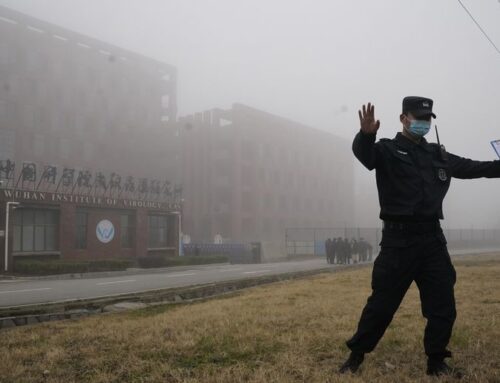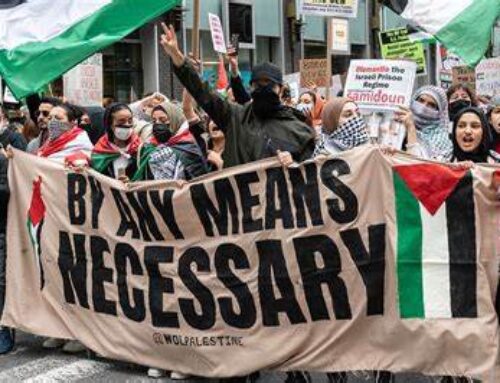Instigators of anti-Christian persecution cry wolf to distract from their own guilt
August 08, 2023
Reprinted from The Washington Examiner
Anti-Christian persecution is growing worldwide. With the exception of Israel, all indigenous Christian communities in the Middle East are in decline. Azerbaijan currently starves 120,000 Armenian Christians in an illegal blockade in an attempt to erase one of the oldest Christian communities on Earth. Turkey denies and, in some cases, celebrates the Armenian genocide, converts churches into mosques, and closes Greek seminaries and schools to smother the remnants of another millennia-old community. Pope Francis is shamefully silent as China suppresses its Catholic community. The Nigerian government is complicit in attacks on its Christians, even as the State Department writes off such violence as a manifestation of “climate change.”
False charges of religious persecution, however, detract from real cases. Cynically, some of the worst perpetrators now incite such accusations against rivals and democracies to deflect attention from their own atrocious behavior.
This certainly appears to be the case with Pakistan. Upon India’s 1947 partition, Pakistan was a self-defined Islamic state but, in theory, a tolerant one. It made not only Muslim holidays but Christian and Hindu ones state holidays. That changed in 1971, when the Pakistani military realized that ethnic separatist movements could tear the country apart. Their strategy? Fan the flames of Islamic extremism so that religion became the overriding identity for Pakistanis. After driving out the country’s Hindu minority, Pakistani officials now use draconian and arbitrary blasphemy laws to terrorize Pakistani Christians. To attend church in Peshawar, Quetta, or Lahore is a life-risking prospect.
How ironic, then, that rather than protect its own minorities, Pakistan now distracts by accusing India, the world’s largest democracy, of anti-Christian persecution. At issue is internecine violence that erupted three months ago in Manipur, a small Indian state alongside the Burmese border with a population half that of the Washington area. What Manipur lacks in numbers, it makes up for in religious, tribal, and ethnic diversity.
If Pakistan-backed activists say anti-Christian sentiment drives riots, they lie. Ethnic tension has simmered for decades among immigration and land use disputes. The spark for the most recent violence was a decision to designate the Meiteis, Manipur’s largest ethnic group, as a “scheduled tribe,” a move that gives the Hindu tribe affirmative action-type advantages that Christians already enjoy. The largely Christian Kuki tribe resist dividing the pie. Adding fuel to the fire was an influx of Kuki refugees fleeing Burma’s military junta, as well as India’s crackdown on opium cultivation, in which some Kuki engage. The Kuki and Meitei burned each other’s houses, stores, and houses of worship. For this, there is no excuse, but motivation matters. That churches belonging to the Naga, another largely Christian ethnic group, remained untouched suggests the problem was never religion.
Back to the United States: Pakistan proxies are happy to fan the flames. Pieter Friedrich, a gadfly who makes a career out of anti-Hindu animus alongside many activists with close ties to Pakistan’s intelligence services, leads the charge to suggest a wholesale massacre of Christians is underway. Launching one of his frequent, short hunger strikes, Friedrich demanded Rep. Ro Khanna (D-CA), a man with whom I disagree on just about every policy matter, intercede in Manipur. Make no mistake, the issue here is not Manipur but rather Friedrich’s hatred of Hindu leaders ranging from nonviolent Indian nationalist leader Mohandas Gandhi to Prime Minister Narendra Modi to every Hindu member of U.S. Congress. Friedrich’s antics are little different than a KKK member launching a hunger strike to compel the NAACP into a debate.
A cartoonish Christian vs. Hindu narrative will not resolve the Manipur tragedy. Unfortunately, too many Christian groups take the idea that Manipur violence is an anti-Christian issue at face value. The U.S. Commission on International Religious Freedom, for example, condemned the burning of churches while remaining silent on the destruction of Hindu temples. In doing so, it plays into the hands of states such as Pakistan, Azerbaijan, and Nigeria, which use bothsidesism to shirk responsibility for their own anti-Christian violence.
The Indian government should prosecute everyone engaged in ethnic violence, but to remain blind to the cynical games of religiously intolerant states would be the ultimate tragedy.







Leave a Reply, please --- thank you.